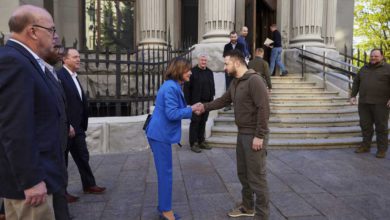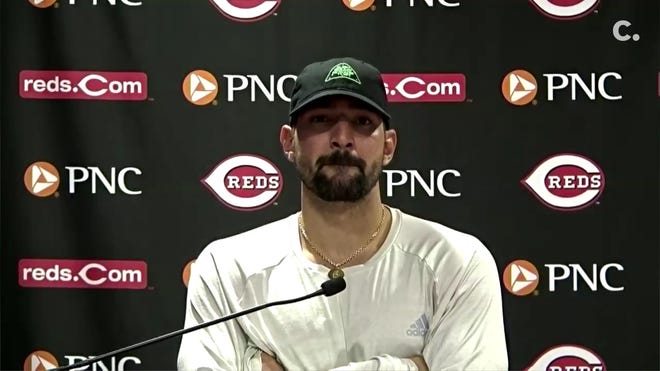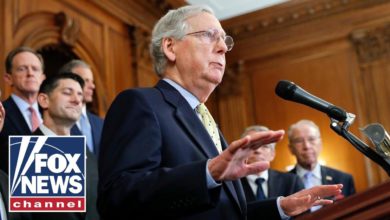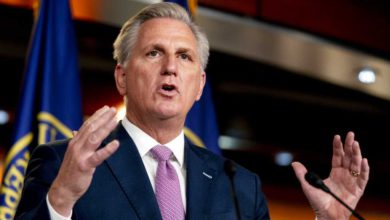On the same day as hosting Super Bowl LV, Florida on Sunday became the first state to report 200 variant COVID-19 cases, according to a USA TODAY analysis.
The concerning news comes as public health officials across the nation are bracing for a possible surge in coronavirus cases if Americans failed to take heed of warnings not to gather for Super Bowl parties.
The game itself was played before 22,000 masked fans, many of them vaccinated health care workers, at the Tampa Bay Buccaneers' stadium, but videos on social media after the game showed revelers in Tampa, many maskless and ignoring social distancing guidance, celebrating in the streets.
The country now has 699 known cases of virus variants, up from 618 on Thursday. Cases of the highly contagious variants have more than doubled since Jan. 27.
Florida holds about 29% of the known variant cases in the country, and now has more variant cases than the entire country had Jan. 23. Each of Florida's known cases is of B.1.1.7, known as the U.K. variant, which the Centers for Disease Control and Prevention says could be the predominant version in the United States next month.
On Sunday night, the United States also reported that B.1.135, known as the South African variant, reached Virginia. The other five known cases are in Maryland and South Carolina. And the P.1 variant, known as the Brazilian variant, had been found in Oklahoma. The other two known cases are in Minnesota.
USA TODAY is tracking COVID-19 news. Keep refreshing this page for the latest updates. Sign up for our Coronavirus Watch newsletter for updates to your inbox, join our Facebook group or scroll through our in-depth answers to reader questions.
In the headlines:
►The United States on Sunday reported fewer than 100,000 new COVID-19 cases, one of the lowest records in three months, a USA TODAY analysis of Johns Hopkins University data shows.
►Pfizer expects to nearly cut in half the amount of time it takes to produce a batch of COVID-19 vaccine from 110 days to an average of 60 as it makes the process more efficient and production is built out, the company told USA TODAY.
►President Joe Biden said "it genuinely is a national emergency" when asked during a CBS News interview about children out of the classroom and women dropping out of the workforce as a result of the pandemic. "It's time for schools to reopen safely," he added.
►Researchers in Britain say a new study of 2,000 people indicates the AstraZeneca/Oxford vaccine provides minimal protection against mild or moderate disease from the South Africa variant of the coronavirus. The study, which did not assess the vaccine's effectiveness in preventing severe disease, raises serious concerns about the efforts to stem the pandemic mostly through inoculations. South African officials said they would postpone the country's rollout of the AstraZeneca vaccine while they study the findings.
►Some California churches opened their doors to worshippers after the state revised its guidelines following a Supreme Court ruling that lifted a ban on indoor services.
►China on Monday reported no new local infections of COVID-19 for the first time since Dec. 16, adding hope that its latest efforts to stamp out outbreaks were working, Reuters reported.
? Today's numbers: The U.S. has more than 27 million confirmed coronavirus cases and 463,400 deaths, according to Johns Hopkins University data. The global totals: More than 106 million cases and 2.31 million deaths. More than 59.2 million vaccine doses have been distributed in the U.S. and about 41 million have been administered, according to the CDC.
? What we're reading: Fatigue, fever and losing the sense of taste or smell are commonly known symptoms of COVID-19. A British researcher has documented other maladies linked to the coronavirus, and they're not pleasant.
US reports 88K new cases; first week of February deadlier than all of June
The 88,044 new COVID-19 cases reported in the United States on Sunday may have been a low marker for recent months, but it still averages more than a case per second, a USA TODAY analysis of Johns Hopkins University data found.
The country hadn't reported fewer than 100,000 cases in a day since Nov. 2, except for Christmas Day, when some states didn't report numbers.
In the week ending Sunday, the United States reported 819,050 cases, about half the rate reported a month earlier. But last month's disastrous spike in cases led to a surge in deaths. The country has been averaging about 3,000 reported deaths per day for a month, and in the week ending Sunday, the United States reported 22,121 deaths.
That first week of deaths in February is greater than the number of deaths reported in all of June.
– Mike Stucka
Chicago schools to reopen this week; San Francisco reaches deal; NYC reopening middle schools
Chicago schools are set to reopen this week after a tentative agreement was worked out with the teachers’ union over COVID-19 safety protocols, potentially averting a strike in the third-largest school district in the nation.
Under the possible deal, which still requires approval by the Chicago Teachers Union, pre-K and special education programs would return Thursday and other groups would be staggered. Kindergarten through fifth grade students would go back to school March 1 and middle schoolers a week later. No return date has been set for high schoolers.
Elsewhere, the unions that represent San Francisco school district workers said Sunday that they also have tentatively agreed to a deal that would allow public schools to reopen, the San Francisco Chronicle reported.
And in New York City, middle schools are to reopen Feb. 25, bringing 62,000 more students back to the classroom after shuttering in November.
Pfizer expects increase in efficiency will relieve bottlenecks in vaccine rollout
Pfizer expects to nearly cut in half the amount of time it takes to produce a batch of COVID-19 vaccine from 110 days to an average of 60 as it makes the process more efficient and production is built out, the company told USA TODAY.
As the nation revs up its vaccination programs, the increase could help relieve bottlenecks caused by vaccine shortages.
"We call this 'Project Light Speed,' and it's called that for a reason," said Chaz Calitri, Pfizer's vice president for operations for sterile injectables, who runs the company's plant in Kalamazoo, Michigan. "Just in the last month we've doubled output."
The increased speed and capacity is not unexpected, said Robert Van Exan, president of Immunization Policy and Knowledge Translation, a vaccine production consulting firm.
– Elizabeth Weise
Dr. Fauci: Not enough time to study impact of delaying second dose
The nation's top infectious disease expert said Sunday that it would not be prudent to delay second doses of COVID vaccines because it would take too long to study the impact.
From "a theoretical standpoint" it would be good to know the durability of one dose, he said. But the Pfizer and Moderna vaccines have been thoroughly tested for a second dose in three weeks and four weeks, respectively, he said.
"The amount of time that it will take, the amount of people you would have to put into the study – by that time, we will already be in the arena of having enough vaccines to go around anyway," Fauci said on NBC News' Meet the Press. "What we have right now, and what we must go with, is the scientific data that we've accumulated, and it's really very solid."
Contributing: The Associated Press








